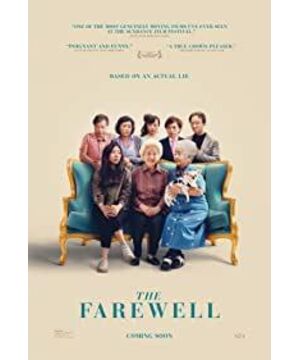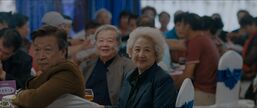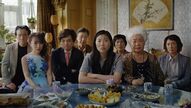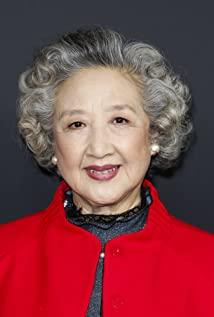Don't tell her, she will not be able to take the hurt; don't tell her, she will lose faith in life; don't tell her, let her go through the last part of life simply and happily.
Ten years ago, my grandfather was diagnosed with lymphoma, and my mother and uncles made the same choice and did not tell him. But when I came back from the hospital, my grandfather put the quilt on the kang and didn't stand up again.
Two years ago, my neighbor, Grandma Ye, was diagnosed with lung cancer. The children came back from other places to take care of her, but she didn't tell her. She smiled and enjoyed it, but inadvertently revealed to me that she had known it for a long time.
The two deaths I witnessed make me always believe that people can clearly perceive their own death, but this does not prevent relatives from deceiving the elderly at the last moment, it is not serious; the elderly also smile considerately, you just worry about it.
The most prominent theme of the film is a conflict between Chinese and American cultures, whether the seriously ill elderly have the right to know about their own diseases. A white lie, is it a kind of kindness or a deception.
Talking to my cousin while watching the movie, we were young, like Billie in the movie, thinking that no matter how cruel, I wanted to know the truth. However, when I thought of my mother's sudden cerebral hemorrhage last year, when I told her about her condition, I only told half of what the doctor said and the good half. I had discussed a similar topic with my mother before, and my mother said with a smile, if that day comes, don’t lie to me, don’t waste money on medical treatment, it’s better to travel. However, when her grandfather had cancer, she was the first to advocate keeping silent.
In the face of ourselves, we always want to be truthful; in the face of our loved ones, we cannot be cruel. The movie is about multiple choice questions with no correct answers.
Everyone is discussing the cultural conflict contained in it, but is it more than a conflict between heterogeneous cultures?
When I was a sophomore, my grandmother was critically ill. The esophagus could not be put into the stomach, and the infusion could not be put into the blood vessels. The doctors and family members were helpless, so they could only give up the treatment and wait for the grandmother to consume her body bit by bit. On the day when I was no longer receiving treatment, my mother called me, made a reservation for the train that night, and arrived home in a hard seat overnight, and I didn’t realize my grandma when I visited the hospital bed. The vacation was very short. When I left, my grandmother was still alive. I walked out of the long corridor of the inpatient department accompanied by my aunt.
However, I still thank myself for the opportunity to say goodbye at last.
So, in the movie, when Billie asked, "What if she wants to say goodbye?", she felt particularly uncomfortable. Big families have returned from the United States and Japan in order to silently say goodbye to grandma, but what if grandma also wants to say goodbye?
I do not know.
It's just that there is a picture of Billy leaning on grandma's shoulder in the movie, which impressed me deeply. The smiling old man looks upright, and the young man in his prime is full of worries, fragile and sad.
One of the things that strikes me about the film is how realistic the details are. In the movie, old people with all kinds of strange fitness methods, drivers chasing and blocking outside the airport and train station, language confrontation at the dinner table, the words spoken by relatives during worship, and even whether the deceased has quit smoking. The serious arguments I did make me feel as if I saw my own life, the life of ordinary people.
At the end of the film, the screenwriter's grandmother is still living a healthy life six years after her diagnosis. Pushing my hands to the camera and shouting, I immediately burst into tears.
The best ending is not to confess or cheat, but not to say goodbye at all.
View more about The Farewell reviews











